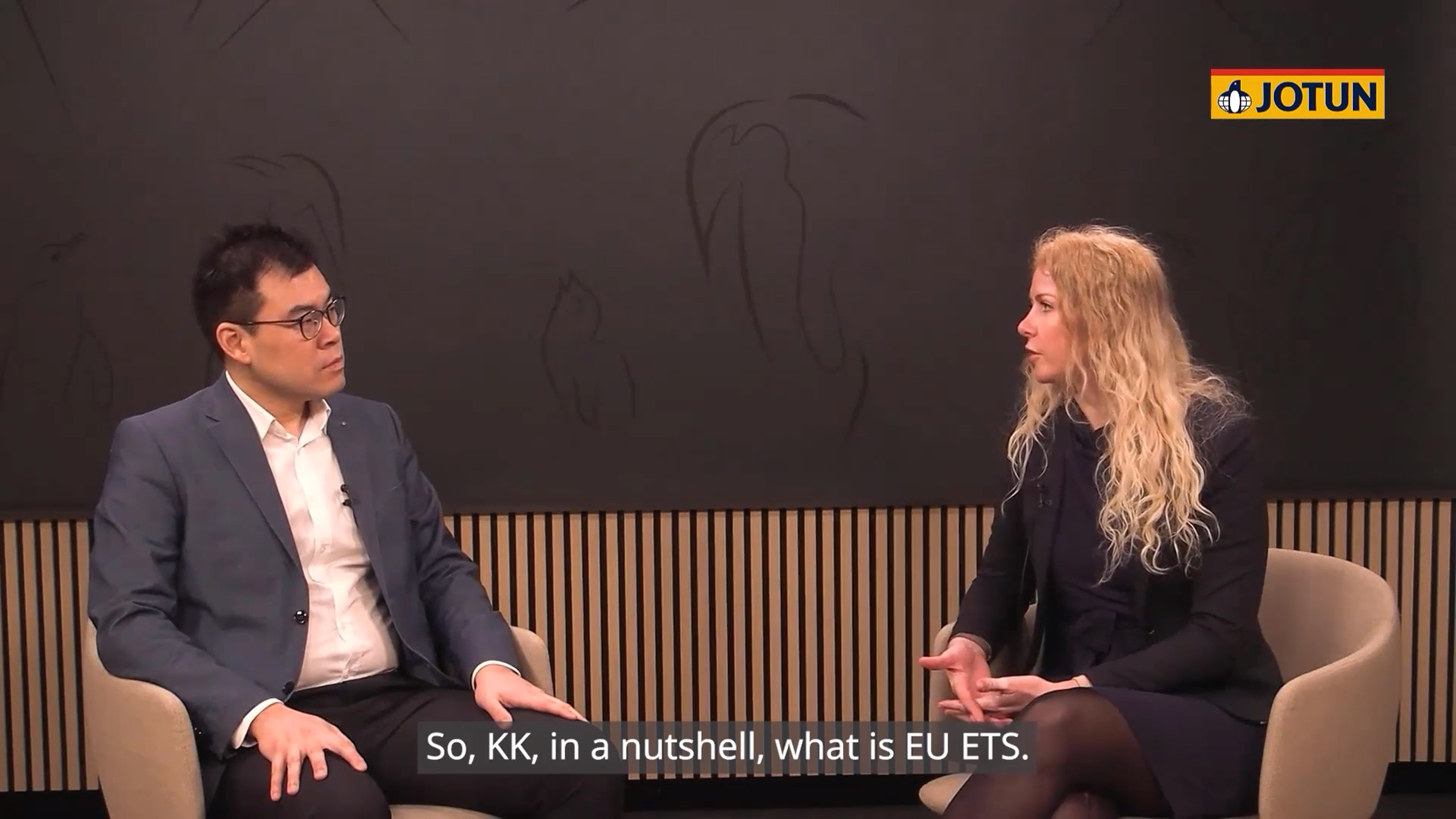In a nutshell, the concept of EU ETS is to limit and put a price on greenhouse gas emissions in the EU. From 1st January 2024, this now extends to the maritime transport sector. This means shipping companies with commercial cargo vessels calling at EU ports will need to buy and surrender emission allowances based on how much greenhouse gases the vessels emit. While the starting point is 40% of carbon dioxide emissions in the first year, this will be progressively increased to 100%, and include methane and nitrous oxide emissions.
EU allowances is currently at 80 to 100 dollars a tonne, so it is clear that this will impact operators’ operational costs moving forward. With the EU ETS in effect putting a price on emissions, an easy step to alleviate the effects is to reduce fuel consumption and improve vessel efficiency.
A major influencing factor on reducing fuel consumption and improving vessel efficiency is hull performance – optimising hull performance will reduce ship operators EU ETS costs. Fouling negatively impacts ship speed and fuel consumption – hull fouling can increase fuel consumption by as much as 40% (Glofouling report 2022) – contributing to even more CO₂ emissions. By keeping a clean hull, ships sail with less resistance, use less fuel and emit less CO₂ – helping ship operators reduce operational costs related to bunkering and emission allowances.
As part of our Clean Shipping Commitment, we support the shipping industry in meeting increasingly stringent environmental regulations, and ship operators can take action today to face the challenge of EU ETS.
Using solutions like Jotun Hull Performance Solutions is an example. With 1% expected average speed loss over 60 months, a clean hull can be translated into fuel savings of 15% compared to market average antifouling performance. That represents a 15% saving on EU allowances for vessels trading exclusively within the EU. In addition – it’s a 15% saving on all fuel costs – even if the ship rarely or never enters EU waters.
Simply put we can say that one tonne of heavy fuel oil products produces a little over three tonnes of CO₂. Even if just 25% of a vessel's voyage is eligible for EU ETS – those 25% alone can represent an equivalent of a 12% increase in fuel costs by 2026.
The implications of the EU ETS will be vast for the whole shipping industry, especially those who operate in EU waters more frequently. The freight intermediary P&I insurer ITIC has said the EU ETS will cost the shipping industry “Billions”. As more industries are brought into the EU ETS, and emission caps are lowered, the price for carbon could well soar if industry players cannot decarbonise fast enough.
Solutions like Hull Performance Solutions and the potential savings mentioned above will play a pivotal role in mitigating the impact of the EU ETS for the whole industry. Looking beyond coatings, adopting new technology and digital solutions, like Jotun Hull Skating Solutions or Jotun HullKeeper, will further improve hull performance – a clean hull means the vessel will emit less carbon and require less EU ETS allowances.




